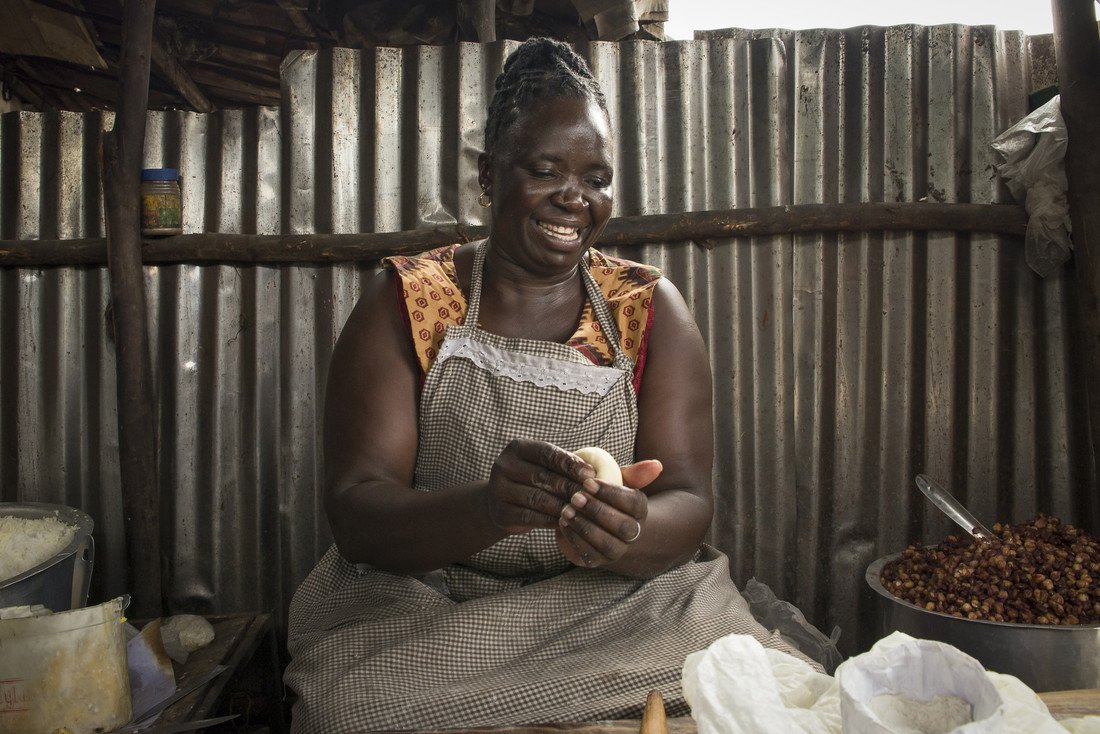Rose Wasiaya's husband called daughters “rubbish.” She was determined to work hard and prove him wrong.
Rose Wasiaya, 39, is a supermom.
The single mother in Korogocho, Nairobi, was abandoned by her husband after giving birth to three daughters. He told her girls were “rubbish,” and unworthy of being educated. He left saying they would not achieve anything.
She felt betrayed. Wasiaya’s mission since then has been to work hard, provide for her girls, and show her ex-husband how his rubbish attitude is wrong. “I wanted to prove that even though I am a woman, I will educate my children,” she says.
When he took off, in 2009, she was a housewife, with no workforce training. She knew how to cook, so she started selling food like Githeri (a traditional Kenya stew made of beans and rice), and chapatti as well as making tea to make ends meet.
By 2015, she had added washing laundry to her list of services just to earn money to buy food. She was struggling to pay her rent. Then, she heard about a project called Wezesha Jamii that was run by Oxfam’s partners in five locations throughout Nairobi, which promised to help her pick up business skills, such as record keeping, taking inventory, and building savings. Wasiaya joined the project managed by SITE Enterprise Promotion in Korogocho, ready to turn her trade into a business.

The goal of the Wezesha Jamii project is to assist people who depend on the informal economy in Nairobi by coordinating vocational training, linking women with financial and training institutions, and setting up information sharing systems. The women in Wasiaya's cohort formed a support group called Rainbow; its 56 members have since established a fund to provide members with loans to help them get through family emergencies.
Wezesha Jamii means “empowering communities” in Swahili, and one of the ways it does that is by educating women about their rights and encouraging women to exert those rights.
County officials are known to harass business owners. “They can come to your business and demand money, and when you say you don’t have money, they take away your stock,” she says.
Wasiaya says that the Wezesha Jamii training gave her the confidence to claim her rights. She called a meeting with the village chief and a village elder, and was able to broker a fair tax rate between small-scale traders and county officials. Members of the Rainbow women’s group gave village elders advice on how to better support small-scale traders, such as establishing stands to sell their goods.
She reports that her business is doing well, and she had added a second room to her home so she and her daughters don’t all have to sleep in one room.
Wasiaya is hustling to send her middle daughter, Penny*, to boarding school; she approached the principal and told him that while she was not able to pay in full, she could pay in installments throughout the year. “I work hard and struggle to make sure that she gets the education, and I am proud that my child is in boarding school,” she says. “My child told me she wants to do law. I told her to study hard, and as long as I am alive she will study law.”
Her youngest, Phoebe*, is still in primary school; Wasiaya hopes she will continue her education on to university.
By the time Phoebe reaches her final year of secondary school, Wasiaya wants to expand her business and buy four more stands in Korogocho.
“My prayer is that in the future I will be able to build a big house, or a small prestigious one in Siaya, where my mother still lives,” she says.
*Children's names have been changed
